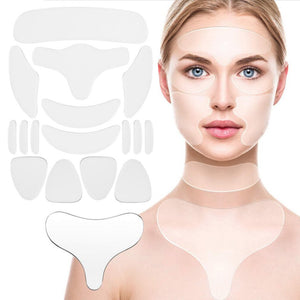
Vitamin D is widely recognized for its role in building and maintaining strong bones and teeth, but its impact extends far beyond the skeletal system.
Research continues to uncover the vitamin’s broader significance in supporting gut health, immune function, muscle strength, and chronic disease prevention.
As such, the staff at Nifty Cool Stuff, our online lifestyle store, believes this is an opportune moment to summarize the benefits of Vitamin D.
In a study of more than 200 children and adolescents from South Florida, researchers set out to examine how a dietary fiber supplement influenced bone health. Before the supplement was introduced, participants’ Vitamin D levels were measured.
Surprisingly, nearly 70% had sub-optimal levels, despite living in an area with plentiful sunshine year-round.

This finding was both surprising and concerning. While Vitamin D can be obtained from a limited number of foods, most people in the U.S. rely primarily on sun exposure to meet their needs. This is especially important during childhood and adolescence, a time of rapid growth and significant changes in bone mass.
Without enough Vitamin D, children may be at greater risk for long-term health complications.

Vitamin D works by binding to receptors located throughout the body, influencing various physiological processes.
One of its most essential functions is helping regulate calcium levels, which are crucial not just for bone formation, but also for the nervous system, muscle function, and cellular activity. It also supports blood sugar regulation, muscle repair, immune responses, and nutrient absorption.
In the digestive system, Vitamin D plays a crucial role in maintaining the strength of the gut lining. The intestinal barrier, composed of tightly joined cells, acts as a selective wall, allowing nutrients in while keeping harmful bacteria and toxins out.

Vitamin D receptors help maintain this structure by supporting the production of tight junction proteins that seal intestinal cells together.
When Vitamin D is deficient, this barrier can weaken, increasing the risk of chronic inflammation and diseases like obesity, diabetes, liver conditions, and gastrointestinal disorders.
In the South Florida study, researchers found that children with low Vitamin D levels were more likely to have compromised gut barriers. This suggests that even in healthy young individuals, insufficient Vitamin D may have early implications for digestive and immune health.

Globally, Vitamin D deficiency remains a widespread issue. In the United States alone, about 15% of children and adolescents are deficient, with higher rates seen among those with darker skin.
Melanin, the pigment that gives skin its color, reduces the skin’s ability to produce Vitamin D from sunlight, meaning individuals with darker skin often need more sun exposure to generate the same amount of Vitamin D.
However, relying on sunlight alone isn’t always practical. During colder months, in northern latitudes, or in urban environments where people spend more time indoors, Vitamin D synthesis may be limited. Additionally, while sunscreen is vital for skin protection, it also reduces the skin’s ability to produce Vitamin D.

Natural food sources of Vitamin D are few and include fatty fish like salmon and tuna, egg yolks, and certain mushrooms. Many staple foods such as dairy products, cereals, plant-based milks, and juices are fortified to help close the nutritional gap.
But for many people, especially those with limited sun exposure or dietary restrictions, Vitamin D supplements are an effective and reliable way to maintain adequate levels.
Supplements are available in two forms:
- Vitamin D2 (plant-derived) and
- Vitamin D3 (animal-derived or synthesized via sunlight exposure).

Both are effective, but D3 is generally considered more potent and longer-lasting in the body. Supplementation can be especially beneficial for people at higher risk of deficiency, such as those with darker skin, older adults, people living in northern regions, and those with certain medical conditions affecting nutrient absorption.
The benefits of Vitamin D supplementation go beyond simply preventing deficiency. Studies show that supplementing with Vitamin D can:
-
Improve bone density and reduce the risk of fractures, especially in older adults.
-
Strengthen the immune system, potentially lowering the risk of autoimmune diseases and infections.
-
Support muscle strength, helping to reduce fall risk in the elderly and improve performance in athletes.
-
Maintain gut barrier integrity, reducing inflammation and the risk of chronic digestive conditions.
-
Aid in regulating blood sugar, which may reduce the risk of developing Type 2 diabetes in those with low levels.

The recommended dietary allowance (RDA) for Vitamin D is 600 IU per day for most healthy children and adults, with an upper safe limit of 4,000 IU.
However, individual needs may vary based on age, skin tone, lifestyle, and health status. Because Vitamin D is fat-soluble and stored in the body, taking more than the recommended amount without medical supervision can lead to toxicity, including elevated calcium levels and potential damage to the heart and kidneys.

Maintaining optimal vitamin D levels is essential not just for strong bones, but for overall health.
A balanced approach that includes safe sun exposure, nutrient-rich foods, and supplementation when necessary can ensure that the body has what it needs to thrive at every stage of life.
Nifty Cool Stuff carries Vitamin D supplements in a variety of forms, so feel free to give us a click and see which one could be of benefit to you.


















































